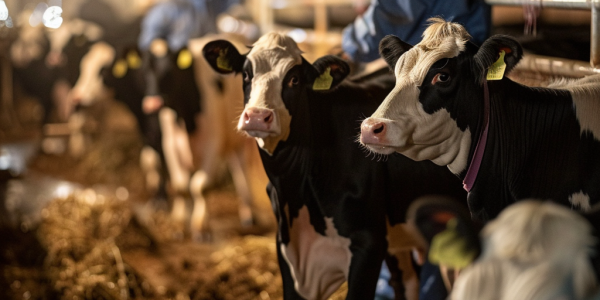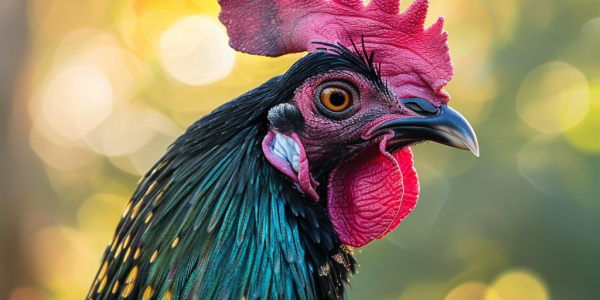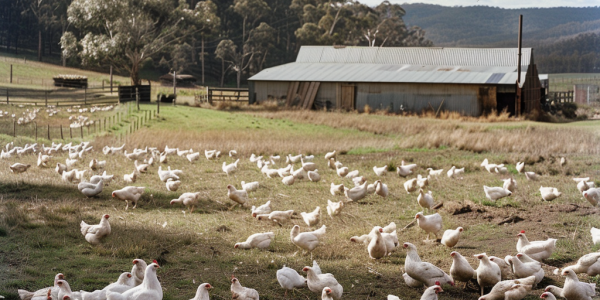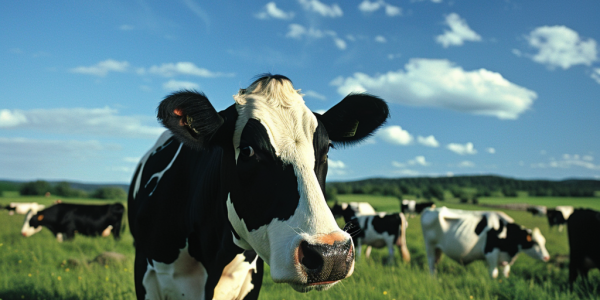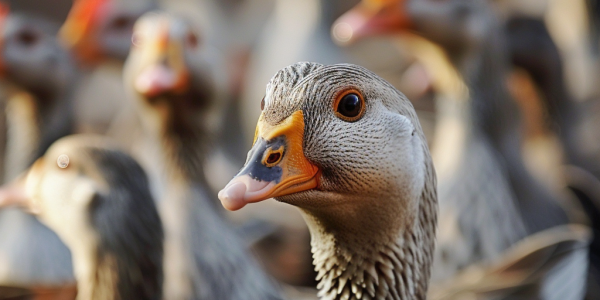USDA Launches Financial Assistance Program for Dairy Farmers Affected by H5N1 Avian Flu
The USDA has launched a new financial assistance program to compensate dairy farmers for losses related to H5N1 avian flu in milk production. Eligible producers can apply starting July 1 through the updated Emergency Assistance for Livestock, Honeybees, and Farm-raised Fish Program (ELAP). This initiative aims to support dairy farmers facing financial challenges due to confirmed H5N1 cases in their herds, highlighting the USDA’s commitment to helping producers during unexpected outbreaks like H5N1.
Finnish Health Institute Reports No Human Avian Influenza Cases Detected
The Finnish Health Institute reports no cases of human avian influenza in Finland, offering a glimmer of hope amidst global health concerns. With successful preventive measures in place, continued vigilance is emphasized to prevent potential outbreaks. Prompt detection and response capabilities play a crucial role in safeguarding public health, highlighting the importance of proactive health measures and collaborative efforts.
South Africa Calls for Poultry Vaccination Against Avian Influenza
South Africa issues call for poultry vaccination against avian influenza as concerns over potential outbreaks loom. Despite recent decrease in cases, country remains cautious entering winter season. Previous outbreak led to significant losses, highlighting gap in vaccine development. Strict biosecurity standards pose challenges for producers. Gabon detects H5N1 virus, highlighting persistent threat of avian influenza in both countries.
Second Bird Flu Outbreak Detected in New South Wales Poultry Farm
A recent outbreak of bird flu with the highly pathogenic avian influenza (HPAI) H7N8 strain has been detected at a second poultry farm in the Hawkesbury region of New South Wales, Australia. Authorities are working to contain the spread of the virus and prevent further outbreaks, highlighting the need for heightened biosecurity measures in the local poultry industry.
WHO: Risk to Public Health from Avian Influenza A (H5N1) Remains Low
The World Health Organization (WHO) has stated that the risk to public health from avian influenza A (H5N1) remains low, despite its spread among dairy cattle in the United States. WHO Director-General, Tedros Adhanom Ghebreyesus, mentioned that the virus has not yet shown signs of easily spreading among humans, with 893 human cases reported since 2003. This assessment leads WHO to continue viewing the risk to public health as low at present.
Former CDC Director Warns of Potential Bird Flu Pandemic
Former CDC Director Robert Redfield warns of the looming threat of a bird flu pandemic, citing high mortality rates and recent cases in cattle and humans. With the virus showing potential to evolve and spread, vigilance and preventive measures are crucial to avoid a potential public health crisis.
Health Officials Warn Public About Bird Flu Deaths and Milk Consumption Habits
Health officials issue a warning to the public about recent bird flu deaths in humans, urging caution in milk consumption. Investigations continue to determine the connection between bird flu and these fatalities, emphasizing the importance of monitoring dairy sources and following health guidelines to reduce risks.
Rising Respiratory Diseases and Avian Flu Outbreak Highlight Public Health Concerns
Respiratory diseases are increasing in Argentina due to dropping vaccination rates, while the UN calls for ocean conservation on World Oceans Day. Aquaculture production surpasses capture fisheries, and the US faces an outbreak of avian flu H5N1. Despite low risk to humans, precautions are being taken to prevent further spread of the disease.
U.S. Government Orders 4.8 Million Doses of Cell-Based H5-Vaccine for Avian Flu Preparedness
The U.S. government has ordered 4.8 million doses of a cell-based, adjuvanted H5-vaccine from CSL Seqirus as part of the National Pre-Pandemic Influenza Vaccine Stockpile program. CSL Seqirus, known for its expertise, will complete the fill and finish process at its manufacturing facility in North Carolina. The Administration for Strategic Preparedness and Response at HHS is supporting the clinical evaluation of an influenza A/Astrakhan/3212/2020–like virus vaccine, a crucial step in assessing efficacy and safety. Effective communication by the U.S. government on the selected candidate vaccine components is essential for engaging stakeholders in understanding the preparedness efforts to safeguard public health.
Australia’s First Human Case of H5N1 Bird Flu Confirmed in Child Who Traveled to India
The World Health Organization confirms Australia’s first human case of H5N1 bird flu in a child who traveled to India. The child recovered after treatment, with no close contacts showing symptoms. Precautions are advised to prevent the spread of avian influenza.

